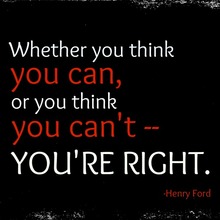Irrational statements that irritate music educators:
“I wasn’t blessed with musical talent.”
“My family isn’t musical.”
“I’ve never been good at music.”
“I’m tone-deaf.”
“I wish I played an instrument.”
“I can’t sing.”
Music is not an elitist activity. Talent is not born in us – nor is it inherent. People are not born with the muscles to speak their native tongue, let alone sing, or brush a pick up and down a set of strings, or touch the ivories in a methodical and creative manner. Acculturation, assimilation, accessibility, and motivational support all have to combine into one masterful symphony to nurture a human being’s skill development.
Regarding acculturation, if a child is not surrounded by adults who speak a systematic language, the neurotransmitters required to transfer information over synapses never fire or connect; therefore, the weaving web of semantics and syntax never reach a linguistic reality.
Regarding musical development, certainly a predisposition to higher socio-economic status, superior motor skills, accessibility to resources at school, and higher IQ may aide in a child’s potential, but any exposure offers substantial cognitive advantages no matter the age of the learner.
My friends, it’s never too late to learn an instrument. Research has proved this time and time again:
“Engaging in musical activities not only shapes the organization of the developing brain but also produces long-lasting changes even after brain maturation is complete. The fact that the adult brain can undergo continual modifications highlights the potential of rehabilitation treatments that are designed to induce plastic changes to overcome impairments due to brain injury. For this purpose, music may be a suitable medium because it transmits visual, auditory, and motor information to a specialized brain network consisting of frontotemporoparietal regions. These brain regions overlap with a “hearing-doing” or “seeing-doing” action-observation network that is commonly known as the mirror neuron system (Wan and others 2010b; Lahav and others 2007). In addition, listening to music or playing music is known to provoke emotions as well as increase interpersonal communications and interactions. Because music making can be experienced as a pleasurable activity through its involvement in the limbic system, individuals are likely to sustain motivation to engage in an intensive training program that involves music. (Music Making as a Tool for Promoting Brain Plasticity across the Life Span, Catherine Y. Wan, Gottfried Schlaug)
If you knew an enjoyable activity was guaranteed to make you smarter, wouldn’t you invest time and resources in it? Music is the only activity activating both the left and right hemispheres of the brain. Here’s a basic video demonstrating why it is important to consider that music may not only be the food of love, but food for the brain.


 RSS Feed
RSS Feed